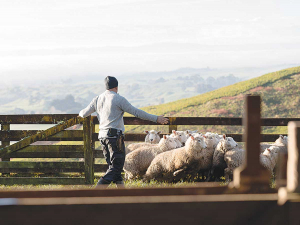OPINION: The biggest issue currently facing our industry is environmental policy, writes Beef+Lamb NZ chief executive Sam McIvor.
Farmers are passionate about being good stewards of their land and want to do the right thing. However, the scale and pace of new government regulations is impacting the financial viability of farming, affecting farmers’ confidence in their industry and having adverse effects on mental health.
In the next government term, we need to see improvements in the essential freshwater regulations to make the rules workable for farmers so they can get on with achieving the desired water health outcomes.
Meanwhile, the government must get fossil fuel emitters to reduce their emissions rather than just planting their pollution on our farms. Limits must be set on the amount of offsetting allowed in the ETS before it’s too late and further swathes of productive sheep and beef farmland are converted to forestry for carbon farming. The RMA isn’t the right tool to fix this problem, but we can work with the government on what is.
We acknowledge action needs to be taken on the environment, but there are farmer and industry-led ways to achieve positive outcomes without unwieldy rule changes – improvements in winter grazing practices over the past two years are a case in point.
We also need some breathing space for our sector and a halt on new environmental policies from the new government. We need to give farmers time to focus on implementing what has already been legislated in the last couple of years.
B+LNZ is working on a new farm planning process focused on the environment that will help farmers meet their regulatory requirements for water, climate change and biodiversity. These will also add value to their farm businesses and help meet customer needs. We want this farm planning process to be accepted as the certified farm plan for essential freshwater.
New Zealand sheep and beef farmers lead the world – we farm more naturally in our free-range systems and use fewer resources than our overseas, often highly industrialised, competitors. We need the government and officials to acknowledge this in the way they develop policy and not rely on overseas studies, and we need them to support us in telling our stories.
If we don’t address these and other important issues facing our sector, our ability to generate export income and support tens of thousands of New Zealand jobs will be jeopardised.











